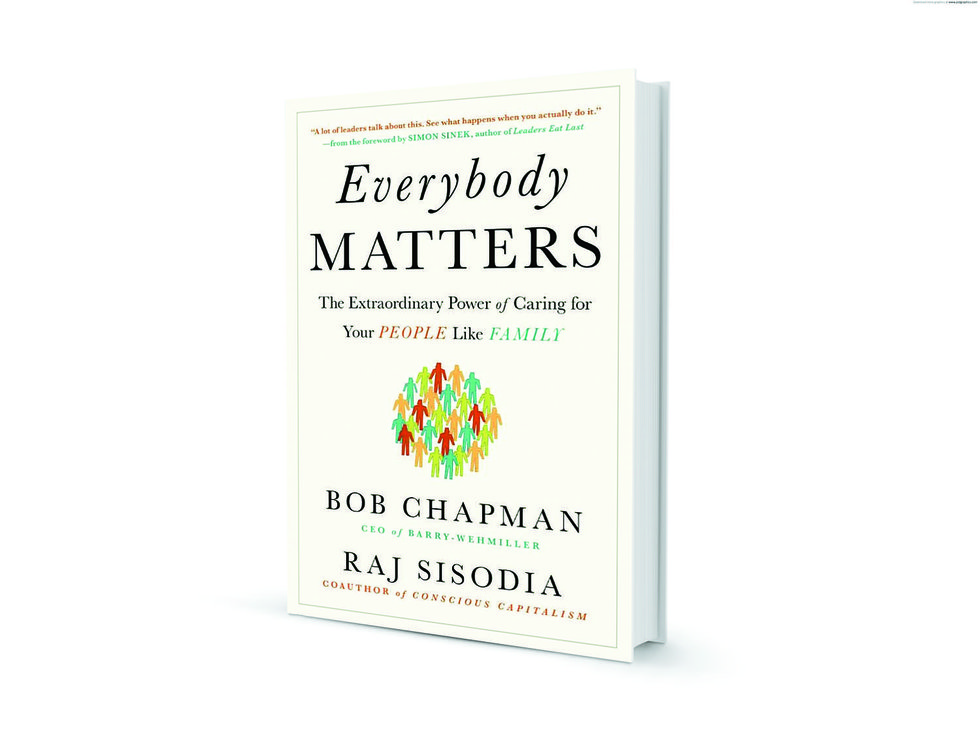In 1997, Bob Chapman, CEO of the $1.7 billion manufacturer Barry-Wehmiller, implemented a new approach to change the traditional way companies treat employees.
Rather than managing along traditional structures and functions, Chapman sought to create a workplace where every person mattered — just like in a family.
Today, after nearly two decades of growth and change, the ideas implemented at Barry-Wehmiller are continuing to create exceptional workplaces that produce equally exceptional results.
In his book “Everybody Matters: The Extraordinary Power of Caring for Your People like Family,” Chapman chronicles his journey to transform the workplace. His success is not limited to the 80 acquired companies within Barry-Wehmiller, but are being applied equally to organizations large and small around the globe.
Chapman draws deeply from his rich tenure at Barry-Wehmiller. Throughout the book, he illustrates from real situations confronted by the company. Many of these crises could have been resolved by sacrificing people for the benefit of the business. Instead, they took up the question, “How can we define success and measure it by the way we touch the lives of all our people?”
The focus is on “all the people,” Chapman explains. Machinery increases productivity incrementally, as can efficiencies. “However,” Chapman insists, “only people can stun you with quantum leaps. Only people can do 10 times what even they thought they could.”
The initial section of “Everybody Matters” focuses on the experiences of Barry-Wehmiller. The book “is about what happens when ordinary people throw away long-accepted management practices and start operating from their deepest sense of right.” Simply put, Chapman has created companies that are labeled “astounding”, and places where people who once hated to go to work and didn’t trust management are now blown away by what Chapman has put together.
The second half of the book is titled “The Playbook.” While Barry-Wehmiller has a unique story, Chapman insists there is an archetypal aspect to it. Citing mythologist Joseph Campbell and his writings on “the hero’s journey,” Chapman encourages other companies with very different histories and leaders to embark on a similar quest.
Chapman suggests some simple basics, listing them as the “10 Commandments of Truly Human Leadership,” including:
• Begin every day with a focus on the lives you touch.
• Embrace leadership practices that send people home each day safe, healthy and fulfilled.
• Align all actions to an inspirational vision of a better future.
• Look for the goodness in people, and recognize and celebrate it daily.
• Lead with a clear sense of grounded optimism.
• Always measure success by the way you touch the lives of people.
“We believe, and have repeatedly experienced, that if you take care of your people, they will take care of the business. If you genuinely let them know that they matter, they will respond in kind. Trust is the foundation of leadership; if you trust people, they will trust you back,” Chapman says.
Barry-Wehmiller encourages this approach universally: nonprofits, private or publicly held companies, and large or small organizations can do likewise. Further, Chapman states, no matter how long your company has been around, it is possible at any moment in time to push the reset button, to embrace a different way of being, and to experience dramatic change.
“Everybody Matters” is a remarkable contribution to contemporary leadership. Chapman shows us how to accomplish what may seem impossible: Synthesize the power of leadership for each of us to create new ways to lead. “No idea could be simpler or more powerful,” Chapman says. “Everybody truly does matter.”
